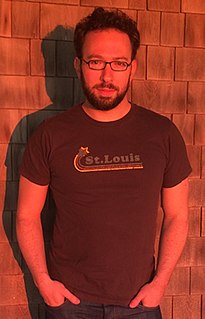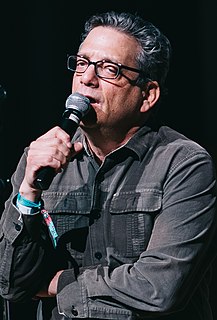A Quote by Charles Dickens
Yet, I had nothing else to tell; unless, indeed, I were to confess (which might be of less moment still), that no one can ever believe this Narrative, in the reading, more than I believed it in the writing.
Related Quotes
Faith means the fundamental response to the love that has offered itself up for me. It thus becomes clear that faith is ordered primarily to the inconceivability of God's love, which surpasses us and anticipates us. Love alone is credible; nothing else can be believed, and nothing else ought to be believed. This is the achievement, the 'work' of faith: to recognize this absolute prius, which nothing else can surpass; to believe that there is such a thing as love, absolute love, and that there is nothing higher or greater than it.
Jack believed in something—he believed in white witches and sleighs pulled by wolves, and in the world the trees obscured. He believed that there were better things in the woods. He believed in palaces of ice and hearts to match. Hazel had, too. Hazel had believed in woodsmen and magic shoes and swanskins and the easy magic of a compass. She had believed that because someone needing saving they were savable. She had believed in these things, but not anymore. And this is why she had to rescue Jack, even though he might not hear what she had to tell him.
No country upon earth ever had it more in its power to attain these blessings than United America. Wondrously strange, then, and much to be regretted indeed would it be, were we to neglect the means and to depart from the road which Providence has pointed us to so plainly; I cannot believe it will ever come to pass.
Narratives that were taken for granted when I was a kid are still there, but they don't have the same depth and fervor anymore. Even the makers of the propaganda don't fully believe the propaganda. The surface structures are more frozen than they ever were, but the core is hollowing out, and it's becoming very fragile. People don't believe in the system anymore. But they're still going along with it because, one, they don't know what else is possible, they don't even know anything else is possible. Secondly, everybody else is doing it. So they go through the motions.
What do you mean less than nothing? I don't think there is any such thing as less than nothing. Nothing is absolutely the limit of nothingness. It's the lowest you can go. It's the end of the line. How can something be less than nothing? If there were something that was less than nothing, then nothing would not be nothing, it would be something - even though it's just a very little bit of something. But if nothing is nothing, then nothing has nothing that is less than it is.
All my life I had lived on the presumption that there was no existence beyond... flesh, the moment of being alive... then nothing. I had searched in superstition... But there was nothing. Then I heard the sound of my own life leaving me. It was so... tender. I regretted that I had paid it no attention. Then I believed in the wisdom of what other men had found before me... I saw that those simple things might be true... I never wanted to believe in them because it was better to fight my own battle. You can believe in something without compromising the burden of your own existence.
I will insist the Hebrews have [contributed] more to civilize men than any other nation. If I was an atheist and believed in blind eternal fate, I should still believe that fate had ordained the Jews to be the most essential instrument for civilizing the nations. They are the most glorious nation that ever inhabited this Earth. The Romans and their empire were but a bubble in comparison to the Jews. They have given religion to three-quarters of the globe and have influenced the affairs of mankind more and more happily than any other nation, ancient or modern.






































